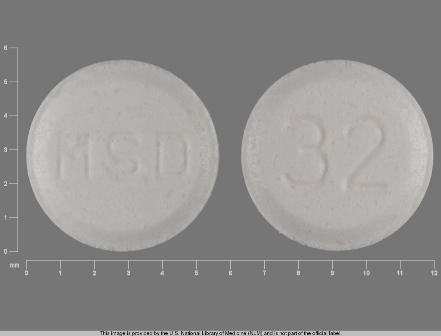Stromectol
Active Ingredient(s): IvermectinFDA Approved: * November 22, 1996
Pharm Company: * MERCK
Category: Antiprotozoal / Anthelmintic
Stromectol is a brand name for ivermectin, a medication used to treat certain parasitic infections. It works by paralyzing and killing parasites in the body. Stromectol is taken as a single oral dose, usually on an empty stomach, and is generally well tolerated. It is prescription-only and should be used under the direction of a healthcare provider.
* May have multiple approval dates, manufacturers, or labelers.1 Discussion
What is Stromectol Used For?
Stromectol (ivermectin) is used to treat:
- Strongyloidiasis: An intestinal infection caused by the roundworm Strongyloides stercoralis
- Onchocerciasis (river blindness): A skin and eye infection caused by Onchocerca volvulus
- Other off-label uses (not FDA-approved but sometimes prescribed by doctors):
- Scabies (mite infestation)
- Head lice
- Certain forms of rosacea
- Some veterinary uses (not for humans)
How to Take Stromectol
- Form: Oral tablet (3 mg strength)
- Usual Adult Dose:
- Strongyloidiasis: Single oral dose of 200 mcg/kg (weight-based)
- Onchocerciasis: Single oral dose of 150 mcg/kg
- How to take:
- On an empty stomach (at least 1 hour before or 2 hours after a meal)
- With a full glass of water
- Repeat dosing: Sometimes a second dose is needed after several months, depending on the infection and provider recommendation
Important: Always follow your doctor's instructions for exact dosing
Who Should Not Take Stromectol?
Avoid using Stromectol if:
- You are allergic to ivermectin or any of the ingredients in the tablet
- You are severely immunocompromised (discuss with your doctor)
- You have meningitis or certain central nervous system disorders, which may increase the risk of side effects
Warnings and Precautions
Talk to your doctor before using Stromectol if you have:
- Liver disease
- HIV/AIDS or other immune disorders
- A history of seizures or other nervous system issues
- Problems with your eyes (especially in onchocerciasis)
Use in Pregnancy and Breastfeeding
- Pregnancy Category: Not formally assigned, but limited human data suggests low risk
- Animal studies have not shown birth defects, but use in pregnancy should be based on a risk-benefit decision by your provider
- Breastfeeding: Ivermectin is excreted in small amounts in breast milk. Talk to your doctor before breastfeeding
Drug Interactions
Tell your doctor or pharmacist if you take:
- Sedatives (e.g., benzodiazepines)
- Other antiparasitics
- Warfarin (may affect bleeding risk)
- Drugs that affect liver enzymes (e.g., ketoconazole, rifampin, carbamazepine)
These may increase the chance of side effects or reduce effectiveness
Possible Side Effects
Common side effects (mild and temporary):
- Dizziness
- Nausea
- Diarrhea
- Fatigue
- Skin rash or itching (especially in onchocerciasis)
Less common but serious side effects:
- Low blood pressure
- Fast heart rate
- Swelling of the face, hands, or feet
- Eye pain, blurred vision
- Seizures or confusion (rare)
Call your doctor or go to the ER if you experience signs of a severe allergic reaction or neurological issues
Overdose Symptoms
Overdose is rare but can be serious. Symptoms may include:
- Loss of coordination
- Difficulty breathing
- Seizures
- Vomiting
- Confusion or coma
Call Poison Control (1-800-222-1222) or seek emergency help if overdose is suspected
Additional Notes
- Stromectol is not effective against viral infections like the flu or COVID-19. Do not use it for conditions not prescribed by your doctor
- Store at room temperature, away from moisture and heat
- Keep out of reach of children
When to Call Your Doctor
Contact your healthcare provider if:
- Your symptoms don’t improve within a few days
- You experience severe side effects
- You think you've taken too much
- You are pregnant or planning pregnancy
References:
